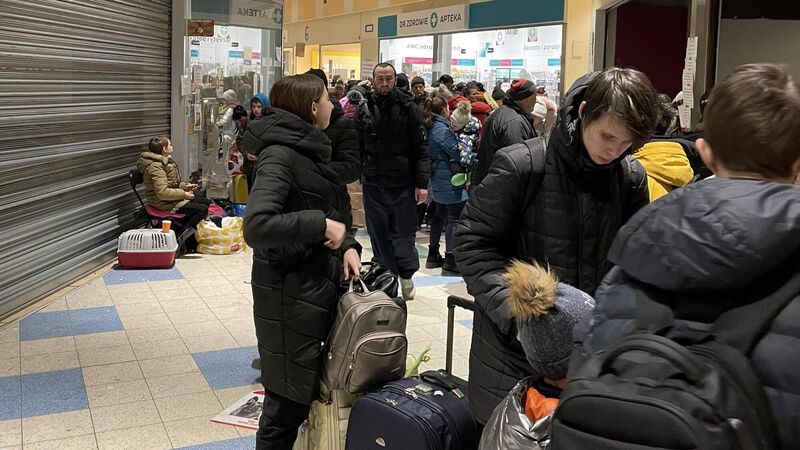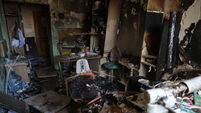Sean Murray: Irish aid will do a lot of good at Polish-Ukrainian border

The humanitarian aid centre in Przemysl where thousands are gathering for shelter, food and onward transport.
On the edge of the town of Przemysl in south-eastern Poland, there’s a large disused Tesco. It's just like the kind you’d find in many places across Ireland.
Instead of groceries on the shelves and staff at the checkout, there are rows of hundreds and hundreds of beds to cater for refugees who’ve had to flee their homes due to war.
















